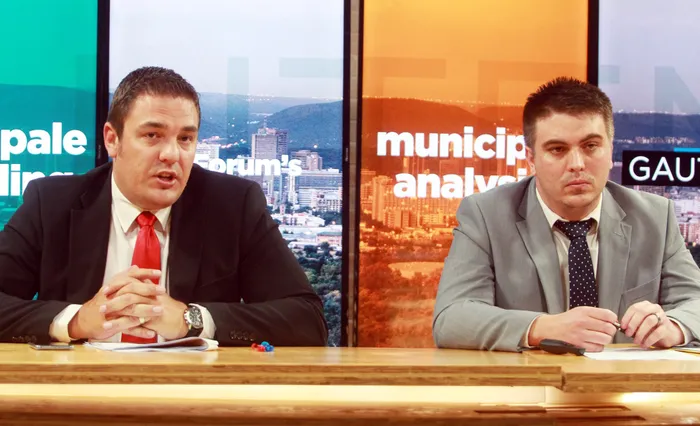AfriForum brings an urgent application regarding municipal electricity tariff hikes

Dr Eugene Brink and Morne' Mostert from AfriForum briefs the media on the release of their analysis of Gauteng municipalities. Picture: Jacques Naude/Independent Media
The civil rights organisation AfriForum, has filed an urgent application in the High Court in Pretoria against the National Energy Regulator of South Africa (NERSA).
AfriForum is seeking to stop NERSA from considering municipalities’ applications for electricity tariff increases, scheduled for implementation on July 1, without the mandatory cost studies.
A High Court order from October 2022 and the Electricity Regulation Act 4 of 2006 both require these cost studies for tariff increase applications.
Morné Mostert, Manager of Local Government Affairs at AfriForum, emphasised the importance of cost studies for determining tariff increases.
“The applications of municipalities that do not have cost studies are simply based on an estimate of what it costs to provide the service. However, applications for tariff increases must be made on accurately calculated figures that will ensure that fair tariff increases are passed on to consumers,” explains Mostert.
Previously, NERSA used guidelines based on past tariffs and price bands to determine tariff increases, but the High Court banned this practice in October 2022.
Mostert expressed concern that NERSA is ignoring the High Court order. “The regulator recently sent communications to municipalities in which the use of a revenue requirement template instead of the prescribed cost study was made available for tariff increase applications,” says Mostert.
In April, AfriForum asked NERSA to confirm if municipalities still need to submit cost studies for tariff increase applications. NERSA has yet to respond.
Deidré Steffens, an adviser on Local Government Affairs at AfriForum, highlighted that their application is in the consumers' best interest.
“Fairness and transparency in the approval of municipal electricity rates is essential. It appears as if NERSA’s current policy and process is not being carried out in accordance with the law and is therefore being applied to the detriment of consumers – and this is what we urgently need to stop.”
“It is high time that NERSA and municipalities get their house in order. NERSA is supposed to regulate the electricity sector, but currently, it seems as though their inability to comply with legislation has an extremely negative impact on consumers,” said Mostert.
IOL News